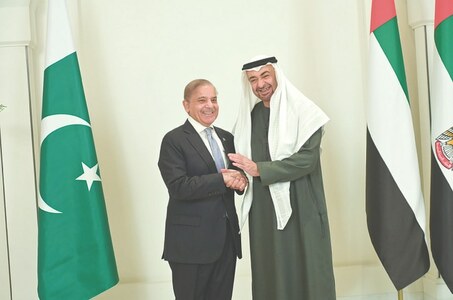ISLAMABAD, Dec 16: The International Monetary Fund has given a go-ahead to Pakistan to provide Rs20 billion fund to support its sinking bourses.
After the removal of the floor on Monday, the Karachi Stock Exchange nosedived to a two-and-half-year low amid growing economic uncertainty, Pakistan-India tension and an earlier IMF warning against using public funds to support the market.
“We have reached an understanding on the issue. Modalities of the support fund will be released in two to three days and shares worth Rs20 billion will be sold out to overseas Pakistanis,” Adviser to Prime Minister on Finance Shaukat Tarin told reporters after addressing a seminar organised by the IMF and Pakistan Institute of Development Economics (PIDE) here on Tuesday.
IMF’s Middle East and Central Asia Director Masood Ahmad also spoke at the seminar.
Later, an IMF delegation led by Mr Ahmad met President Asif Ali Zardari and Prime Minister Yousuf Raza Gilani.
Mr Tarin said the government was assessing the market to determine the actual price of shares. He ruled out capital flight during the crisis in the stock market.
A senior official of the finance ministry told Dawn that the IMF had rejected a government’s request for a Rs30 billion 12-month ‘put option’ to prevent a stock price decline.
He said the Rs20 billion fund would be set up by four state-owned institutions — NBP, EOBI, State Life and NIT — with borrowing guarantee from the government.
Mr Tarin said that poverty rate in the country had climbed to 28 per cent, adding that the government was trying to bring down inflation to nine per cent over the next two years.He said the IMF would review Pakistan’s economy in February before releasing the next tranche of $1.5 billion.
He said a law to stop transfer of money through the ‘hundi’ system would soon be presented in parliament.
State Bank Governor Dr Shamshad Akhtar said that rising unemployment and poverty posed a great challenge which needed to be addressed.
President Zardari told the IMF delegation that his government had decided to achieve the goal of self-sustaining high economic growth and self-sufficiency in fuel and edible oils. “The government accords high priority to the agriculture sector so that the import bill of edible oil is brought down and possibilities are explored for use of ethanol as fuel,” he added.
Mr Ahmad said the IMF programme was in fact Pakistan’s own home-grown programme.
Prime Minister Gilani apprised the IMF delegation of his government’s approach to address problems like poverty, limited access to public services and extremism through a combination of administrative, political and security measures.
The delegation suggested measures for improving the tax-to-GDP ratio.
The IMF delegation included Juan Carlos Di Tata, deputy director for Middle East; Dr Jaffer Mojarrad, executive director; and Paul Ross, senior resident representative in Pakistan.













































Dear visitor, the comments section is undergoing an overhaul and will return soon.